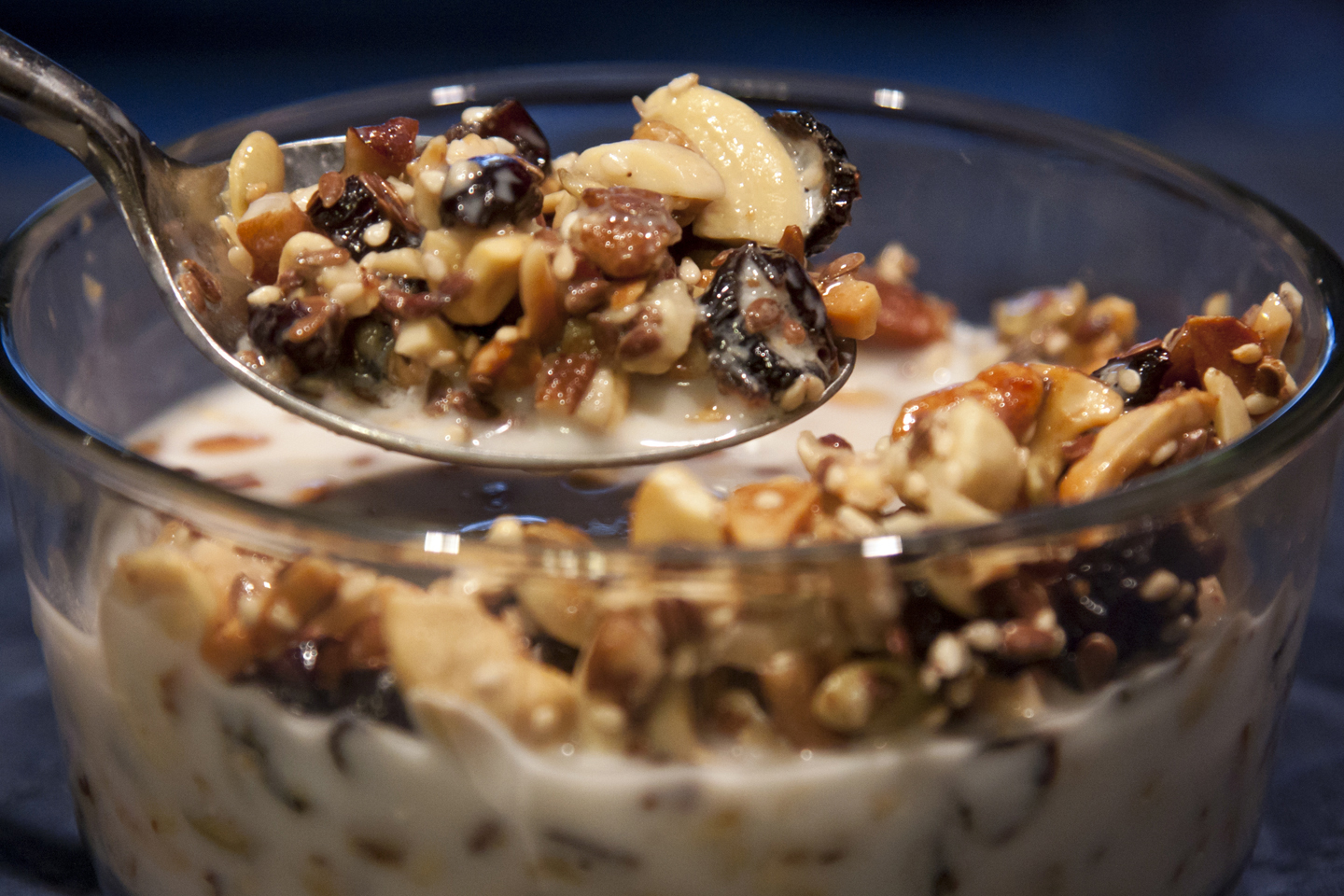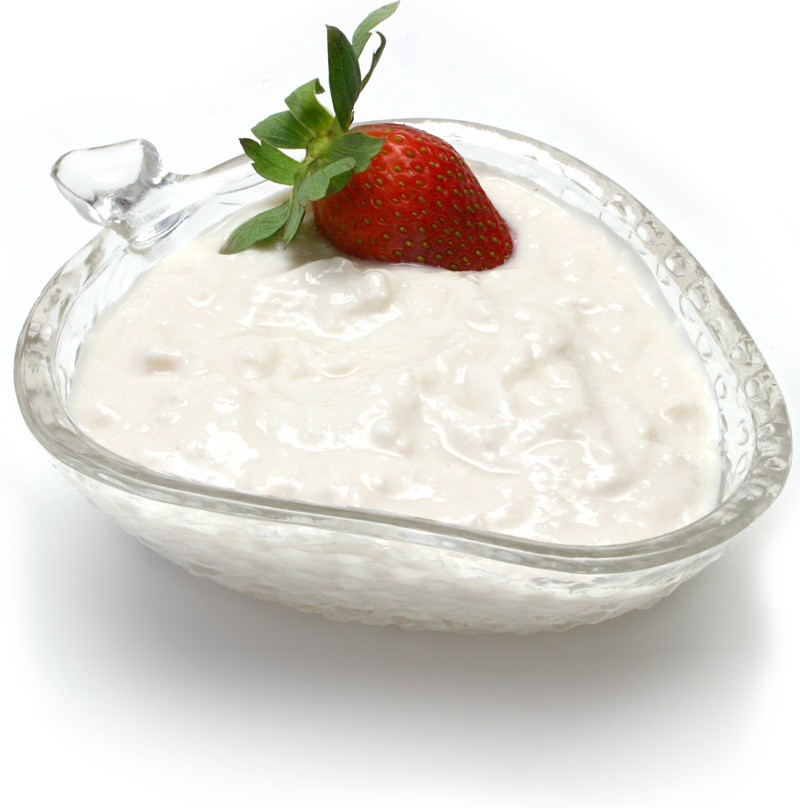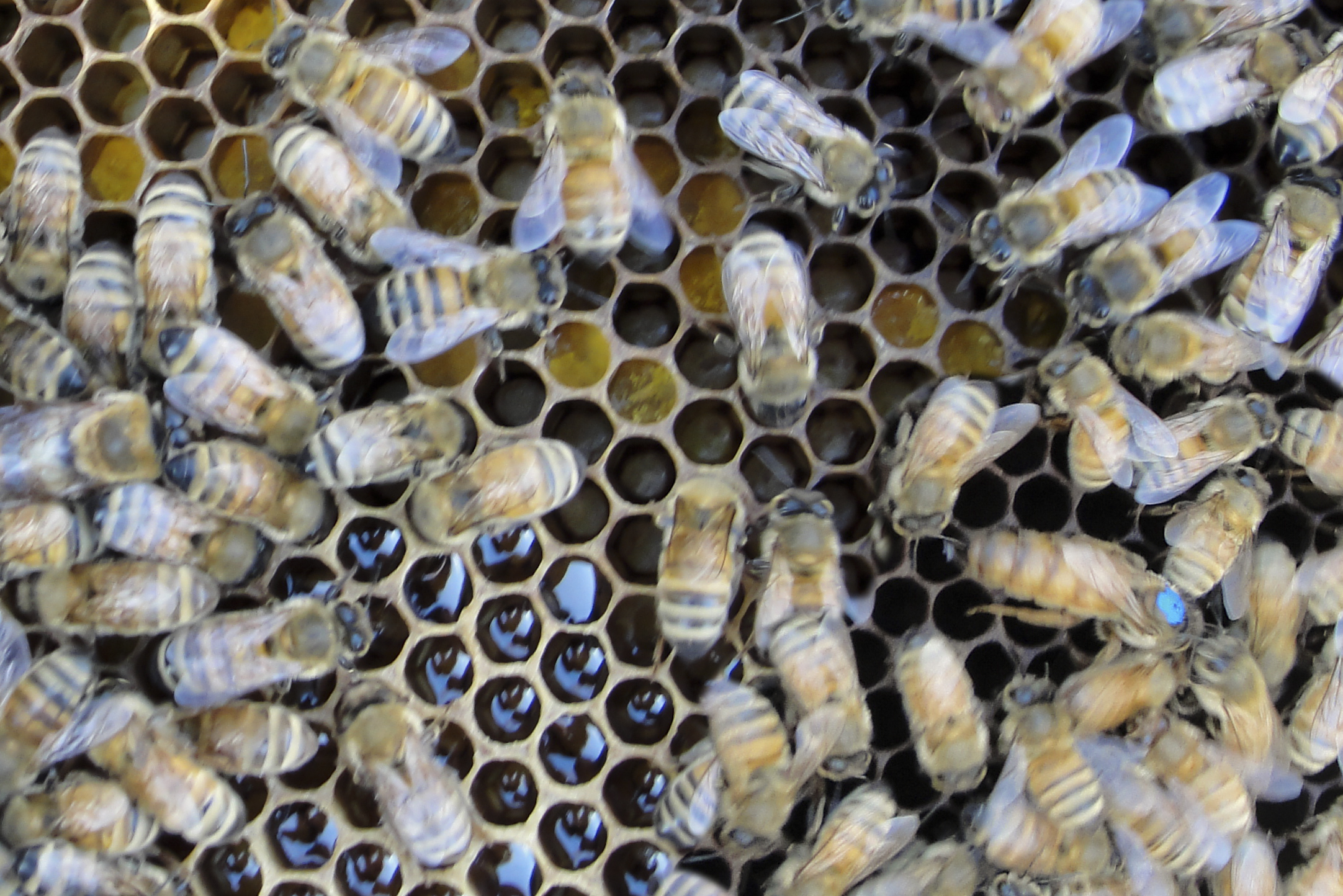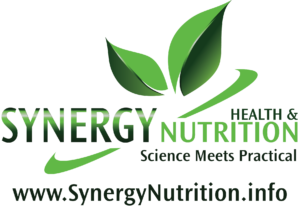 This mother’s day I’m planning to have energy to burn, to feel great, and do whatever I want. Sunday is a break from the daily great big rush of getting my (now 13-year-old) son and I out the door in time for school and patients. He always likes to make me a
This mother’s day I’m planning to have energy to burn, to feel great, and do whatever I want. Sunday is a break from the daily great big rush of getting my (now 13-year-old) son and I out the door in time for school and patients. He always likes to make me a  special breakfast; something special to start our day with lots of protein and other genuine building blocks. Whether he gets creative and makes me Berry and Almond Scones, or A Garden Variety Quiche, this yummy Raw Honey Nut Meusli served over Coconut Milk Yogurt (don’t for get the fresh seasonal strawberries) is a ready-made and simple option.
special breakfast; something special to start our day with lots of protein and other genuine building blocks. Whether he gets creative and makes me Berry and Almond Scones, or A Garden Variety Quiche, this yummy Raw Honey Nut Meusli served over Coconut Milk Yogurt (don’t for get the fresh seasonal strawberries) is a ready-made and simple option.
And besides, I think moms, mother’s day, queen bees, and honey just sort of go together. Our Raw Honey Nut Meusli can be made at any time and stored—so all my #1 son has to do is pour a bowl and add unsweetened almond or coconut milk. Voila! Ready to go. Mom’s mother’s day breakfast in bed.
Since my cooking style is really along the lines of “handfuls of this;” “some of that,” when my neighbor (with the same cooking style) told me this recipe we of course never wrote down anything, or exactly measured. I think I recall the ingredients as she said them but you never know… my family loves this recipe, and Judith, I certainly welcome your edits… the rest of you, please add a little of this and that and do send in any suggestions and great variations.
This is my neighbor who also keeps bees. Their honey has found many ways into our hearts. A few years ago, my son missed a school lesson on bees and I was grateful to walk up the street and learn about their hives. We helped Bill check the queen bee and feed each hive as it was early in the season before flowers are blooming. The trick is to grow the hive population early in the year so that all summer they can  focus on making honey. As we pulled out each frame, it was amazing to me that the bees didn’t react or get mad. We followed Bill’s instructions for no sudden movements; some of the bees would land on our clothes, sit there, and leave in as harmonious a relationship as you could imagine. From time to time I recognize their honey bees when they visit my many flower gardens.
focus on making honey. As we pulled out each frame, it was amazing to me that the bees didn’t react or get mad. We followed Bill’s instructions for no sudden movements; some of the bees would land on our clothes, sit there, and leave in as harmonious a relationship as you could imagine. From time to time I recognize their honey bees when they visit my many flower gardens.
As an aside, Bill told me that the Southcentral Alaska Beekeeper’s Association does classroom presentations. I set this up and it was well worth it. Our speaker, Tina, brought a contained hive, her own raw honey, and we all gained an appreciation for these amazing insects—without which there would not be flowering plants.
Health benefits of raw honey: (if you want a goodly scientific review article, go here)
Although we need to go easy on our sweets—it is Mother’s Day and mothers are sweet. My Raw Honey Nut Meusli recipe uses raw honey made by neighborhood bees, but not very much. It is important that your honey is raw and from a known source: as soon as honey is pasteurized it becomes just as bad as table sugar for spiking your blood sugar—and your waistline! Raw honey is alive with enzymes and other health beneficial nutrients. Pasteurized honey is, well, sterile and not any better for you than high fructose corn syrup.
Most store-bought honey is pasteurized; if it doesn’t specifically state “raw” on the label, it isn’t. More recently, most store-bought honey is also subject to a procedure called “ultra filtering.” This high-tech procedure of heating (sometimes after watering-down the honey) and then forcing it through extremely small filters removes pollen and thereby the ability to trace the source of the honey. Why is this important? Many low-grade hives in china and other countries are infected and routinely treated with antibiotics. It is illegal to sell antibiotic-contaminated honey in the U.S. and Europe, but the only way to trace this is through the pollen “fingerprint” that indicates its source. Ultrafiltration removes this—and I am sure is being touted as good by those manufacturers as in “now ultrfiltered!” Check here for a list of cheap brands that use this trick.
Raw honey was the only widely available sweetener throughout human history until replaced in the 1800’s with industrial sugar cane and more recently high fructose corn syrup. Bees contribute to the nectar they collect and make it very, very different from these cheap sugar extracts.
As long ago as 1892, honey ointments were scientifically shown to have antimicrobial activity. Other health benefits are described even in the earliest writings; Sumerian tablets dating back to 2100–2000 BC, mention honey’s use as a drug and an ointment. Besides antiseptic properties, raw honey helps clear infection by boosting the immune system, having anti-inflammatory and antioxidant activities, and by stimulating cell growth.
Not all honey is created equal and there is a lot of conflicting stuff on the internet because, well, because anybody can say anything. I always go back to the scientific literature. In this case, the story on raw honey is very clear:
- Raw honey’s ability to fight bacteria, fungus, even parasite infections has to do with certain enzymes.
- Heat (pasteurization) and light destroy these enzymes and honey loses all antiseptic properties becoming no better than sugar. In fact, it becomes a food source for unwanted guests after it is sterilized by heat treatment.
So even though manufacturers of cheap pasteurized and ultra-filtered honey claim their product has the same health benefits, in truth it doesn’t—there is a big difference.
Today, we know that diets high in fructose—especially high fructose corn syrup—cause obesity, adult onset diabetes, may be linked with other chronic inflammation symptoms such as gout and heart disease, and cause unwanted health effects too numerous to list.
Although also high in fructose (the exact amount varies by honey type), raw honey does not elevate blood sugar in the same way nor does it appear to cause the body to make and store fat as does high fructose corn syrup.
Raw honey also increases the amount of antioxidants in the blood (which would help reduce inflammation and promote healing). Interestingly, although table sugar and high fructose corn syrup are known to feed cancers—raw honey does just the opposite and actually has both anti-carcinogenic and anti-mutagenic properties.
Bill, I know that a lot of people dislike bees or are afraid of them. Thanks for bringing greater understanding of them into our lives. Judith—thanks for your kind gift of raw honey.
Reference: Honey for Nutrition and Health: A Review. Bogdanov, S; Jurendic, T; Sieber, R and Gallmann, P; J Am Coll Nutr December 2008 vol. 27 no. 6 677-689
Copyright © 2012. Marie Sternquist. All Rights Reserved.







